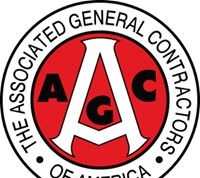CONSUMER ALERT: NEW YORK DEPARTMENT OF STATE’S DIVISION OF CONSUMER PROTECTION RELEASES TIPS TO HELP AVOID MOVING SCAMS
Be Aware of Deceptive Business Practices That Can Cost Thousands of Dollars for Services Not Provided While Moving to a New Home
Follow the New York Department of State on Facebook, Twitter and Instagram for “Tuesday’s Tips” – Practical Tips to Educate and Empower New York Consumers on a Variety of Topics
WASHINGTON, D.C. – RealEstateRama – Secretary Rodriguez: “The NYS Division of Consumer Protection offers important tips for New Yorkers to avoid the signs of possible scams and to plan for a smoother and more secure moving experience.”
For this week’s “Tuesday’s Tips,” the New York Department of State’s Division of Consumer Protection provides consumers with important tips to avoid scams when moving. Moving your belongings can be a stressful process, and unfortunately scammers use these situations to defraud consumers out of thousands of dollars by using deceptive business practices.
“Moving to a new home can be very stressful if consumers don’t choose the right services to transport their personal possessions or verify that the company they plan to use is properly licensed by the State of New York,” said Secretary of State Robert J. Rodriguez. “The NYS Division of Consumer Protection offers important tips for New Yorkers to avoid the signs of possible scams and to plan for a smoother and more secure moving experience.”
TIPS WHEN MOVING:
Pay attention to bait and switch sales practices. This deceptive practice involves providing an initial misleading quote and then making last-minute changes to agreed-upon price quotes. Be wary of companies that offer instant quotes instead of gathering detailed information to provide an accurate estimate. When you receive a binding estimate, you cannot be required to pay more than that the amount you agreed upon, unless you’ve requested additional services after.
Pay attention to deceptive business practices. Deceptive business practices include late deliveries with no advance notification, delivering damaged items, missing items, holding items hostage until consumers provide additional amounts of money or failure to fulfill any contractual obligations. Avoid dealing with any business that engages in these practices by doing general online research and learning your rights as outlined below.
Review all terms and conditions prior to loading. Before the movers have moved any of your items into the truck, meet with the company representative at your home to review material terms of the contract, most notably the cost and delivery terms.
Do general online research. Confirm that the moving company is an honest and reputable business with a physical address, has detailed contact information and is rated well by others in consumer reviews. Check the Federal Motor Carrier Safety Administration’s (FMCSA) National Consumer Complaint Database or the Better Business Bureau, which has a searchable database of consumer reviews.
Hire licensed or registered movers. Before hiring a moving company, confirm that it’s a government-regulated entity.
- Moves within New York State (NYS): All moving companies must be licensed in New York. The NYS Department of Transportation licenses companies for moves statewide. To ensure that your moving company has valid New York State operating authority, contact the NYS Department of Transportation at 518-457-6512 or e-mail " rel="noreferrer">
or for more information go to https://www.dot.ny.gov/divisions/operating/osss/truck/moving. When checking on a mover, please provide their exact name, and if available, NYDOT number.
- Moving out of State: Make sure the mover is insured and registered with the federal government. The Federal Motor Carrier Safety Administration (FMCSA) registers companies that meet legal and safety requirements for moves between New York and other states. You can look up whether an interstate moving company is registered through the FMCSA’s Mover Registration Search
Get multiple estimates. Plan to get estimates from at least three companies. Do not rely on any estimates provided over the phone or email without an additional inquiry on the number of items to be moved. Moving companies should gather detailed information about the number of items you need to move.
Pay attention to hidden or additional charges. Be wary of requests for large upfront payments or full payments in advance.
Never sign a blank or incomplete estimate. Unscrupulous movers could use the blank or incomplete estimate to change the terms of your move, including the cost, without your knowledge or consent.
Get written estimates and contracts. Moving companies should give multiple documents before, during and after your move with information on the requested services, cost calculations and other agreements between you and the movers. Make sure you understand which terms in these documents are estimates, which can change later and which are contractual agreements. Scammers might try talking you out of signing written contracts if for some reason items get lost or stolen.
Create an inventory of your belongings. Make a photo record and keep a written inventory of all your items.
Know your rights. Insist the mover provide you with a Summary of Information booklet from the NYS Department of Transportation that describes your rights as a shipper. For interstate moves, the company is required to share the FMCSA’s guide, which includes details specific to interstate moves. Read these guides thoroughly to know your rights and responsibilities throughout the moving process.
Learn more about hiring moving companies. Visit the FMCSA’s Protect Your Move website for more resources on interstate movers. See the NYS Department of Transportation’s website for more information on hiring movers within New York.
Try to resolve any disputes. If you have a dispute with an interstate mover, file a complaint with the FMCSA on their National Consumer Complaint Database. If the move occurred entirely in New York State, first notify the company in writing as soon as possible. If you can’t resolve the issue with the company and the dispute relates to the loss or damage of your goods, file a complaint with DCP. For all other moving disputes, file a complaint with the NYS Department of Transportation.
About the New York State Division of Consumer Protection
The New York State Division of Consumer Protection provides resources and education materials to consumers, as well as voluntary mediation services between consumers and businesses. The Consumer Assistance Helpline 1-800-697-1220 is available Monday to Friday from 8:30am to 4:30pm, excluding State Holidays, and consumer complaints can be filed at any time at www.dos.ny.gov/consumer-protection.
For other consumer protection tips and consumer alerts, consumers can visit the DCP website or follow DCP on social media via Twitter at @NYSConsumer or Facebook at www.facebook.com/nysconsumer.
###













